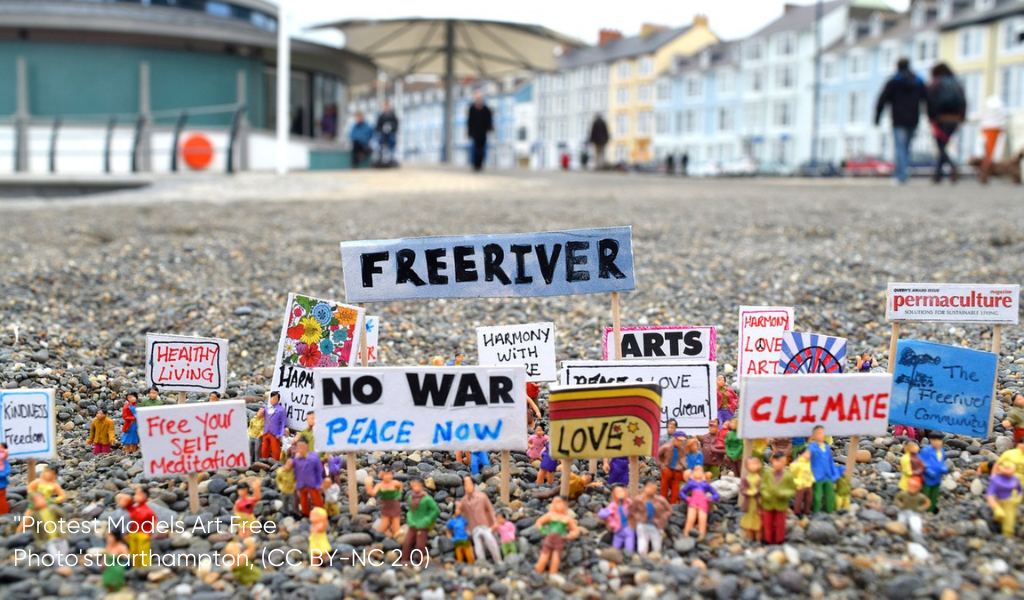We (Tessa and Robert) are working on a book of forewords Robert has written for other books. We think collecting the writing together In this way will draw attention to their importance and be valuable to others. We were brainstorming about the final section which is still to be written.

In that we want to encompass the great global movements of recent months and years like Me Too, Black Lives Matter, Extinction Rebellion and Fridays for Future; and to leave space for new movements that we can expect to spring up in future. And at the same time we want to question mindsets and attitudes which consciously or unconsciously are racist, gender insensitive, neo-colonial, anti-democratic, or exclusionary. Looking forwards there are huge issues of personal and social responsibility concerning how we live with each other and how we live on and care for our planet and the prospects for future generations. How we counter damaging social hierarchies and growing wealth gaps, and move towards a more horizontal interdependency; or “radical equality” (Butler, 2020).
We wonder whether the very words development, and more so international development are now too narrow, or even out of date. Things in our field have moved on, but not our vocabulary. International development carries associations and baggage from past ‘us-them’ relationships. So, we wonder whether we should move beyond development and international development as the words that frame what we do and which express our values and concerns. We are not proposing abandoning international development, but rebuilding and repurposing it. Looking for a more egalitarian and inclusive alternative framing we hit on universal justice or inclusive universal justice as possible replacements in our vocabulary and mental frames.
Why those words?
First, universal. The SDGs are internationally egalitarian. They apply to all countries, as much to the so-called developed countries as to others. And they are thus inclusive and they include values of equity and sustainability in many places. Strikingly, and remarkably, they have been agreed and supported by all 193 countries that signed up to the SDGs so that the same indicators of progress or regress can be used for them all. Can an inclusive universalism, not limited just to the SDGs, be used to provoke and guide us towards a better future?
Second, justice is a powerful word with many applications. It can be expressed ‘Justice is the morally fair and right state of everything’. The word justice has been used in many contexts such as social justice, racial justice, gender justice, and climate justice.
Mary Robinson’s book Climate Justice: hope, resilience and the fight for a sustainable future points to justice which is both present and future. Movingly, she portrays very different individual people she has met who already suffer from climate change, and argues for a Just Transition for them. A just transition requires an agenda of immediate mitigation and benefits for victims of climate change. For the future she talks of responsibility for our children and grandchildren. Climate justice can also include a deep and spiritual sense of responsibility, being just to nature, caring for our planet and its diversity of species and ecosystems. Crucially, climate justice necessitates an interconnected justice, one that recognises that individualised approaches will fail; and one that facilitates collaboration with our children and grandchildren.
In the past Robert has teased people by defining development as good change and then asking them what is good and what changes are significant. If we now define good change as progress towards inclusive universal justice, new questions become: what is justice and what are the implications of inclusive universal justice?
To answer these questions is a personal and existential challenge. Do we first have to be reflexive and examine critically our mindsets and conscious and unconscious values and biases? We all have reflexive work to do. There will never be final answers. So, let us pose a question, a provocation. In the spirit of the SDGs, has the time come to redefine our overarching goal in ‘development’ and ‘international development’ as universal justice?